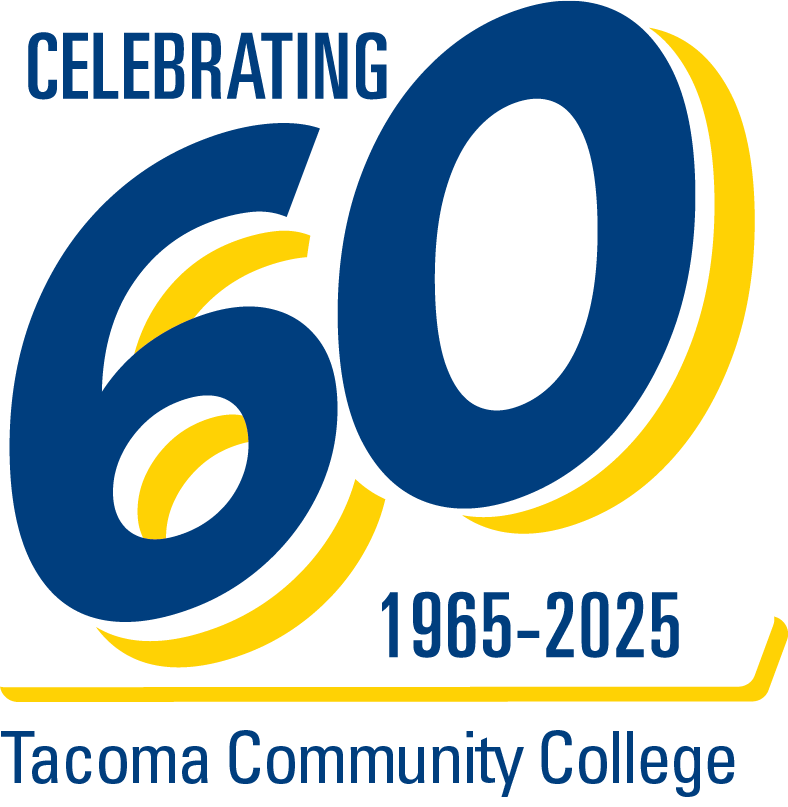Institutional EDI
Student & Employee Cultural Support
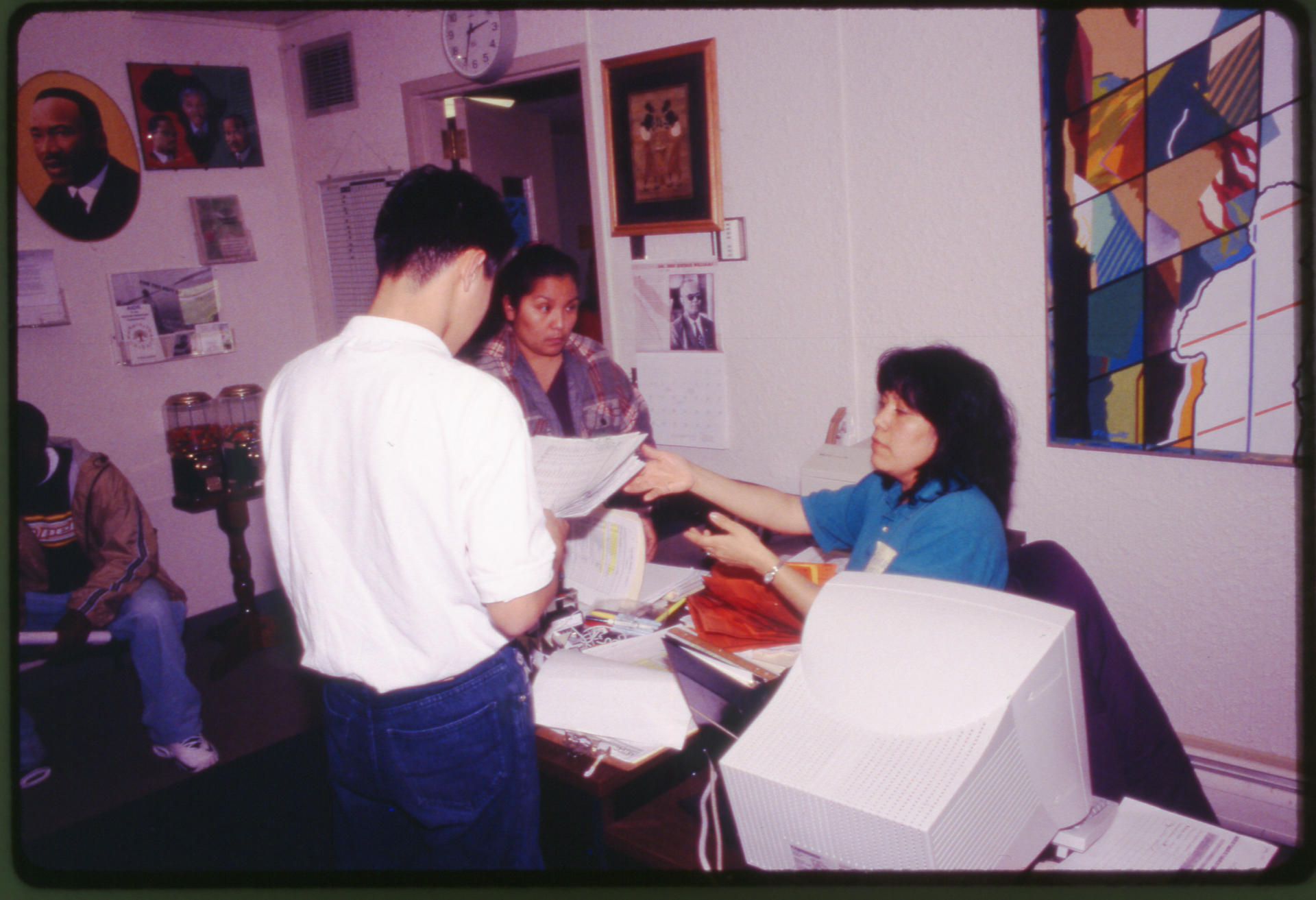
Students and staff in the MECA office, circa 1990s.
The groundwork laid in the late 1960s and early 1970s to establish offices, policy, and programs supporting women and students and employees of color encountered some turbulence in the economic struggles of the late 1970s and into the 1980s at TCC, but also found some of their functions integrated into broader campus systems. The affirmative action role overseen by Minority Affairs became a centralized function of Human Resources,47 and the Ethnic Studies Laboratory became part of the library’s larger audiovisual department.48
As Minority Affairs began to take on more of a personnel focus, the college created the new Multi-Cultural Student Services Program in 198849 centering students, which provided personal and academic counseling, study groups, and cultural activities.50 A decade later, the program was renamed the Center for Multi-Ethnic/Multi-Cultural Affairs (MECA).51 Meanwhile, the college developed the Center for Academic Support and Achievement (CASA) with federal TRIO funds to establish student support services for first generation students, low-income students, and students with disabilities in the early 2000s.52 There was a fair amount of permeability between MECA and CASA due to overlap in the students they supported, also evident in the way that staff often moved between the programs over the years.53 Around 2008, CASA became a physical space in the Student Center (Building 11), housing both the TRIO-funded Student Support Services program and MECA,54 and over the years CASA and MECA merged.55 In 2023, CASA/MECA became the Center for Student Advocacy and Cultural Support.56
When President Pamela Transue arrived in 1997, she recognized the need for greater employee support. Several different advisory councils were formed to explore and support the needs of underrepresented members of TCC.57 These councils had varied membership, including students, staff, faculty, administrators, and broader community members from relevant organizations such as Tacoma Community House.58 The councils allowed for greater communication between students, employees, and upper administration. President Ivan L. Harrell, II, Ph.D., hired in 2018, formalized TCC’s commitment to equity work on an institutional level by creating the Office of Equity, Diversity, and Inclusion (EDI) and hiring the college’s first Vice President of EDI. Upon its establishment, the new EDI office launched an extensive campus climate survey to amplify the voices of TCC community members who had felt unheard. The office also created a structure for analyzing policy through an equity lens, which continues to be the center of the college’s policy work in shared governance.59
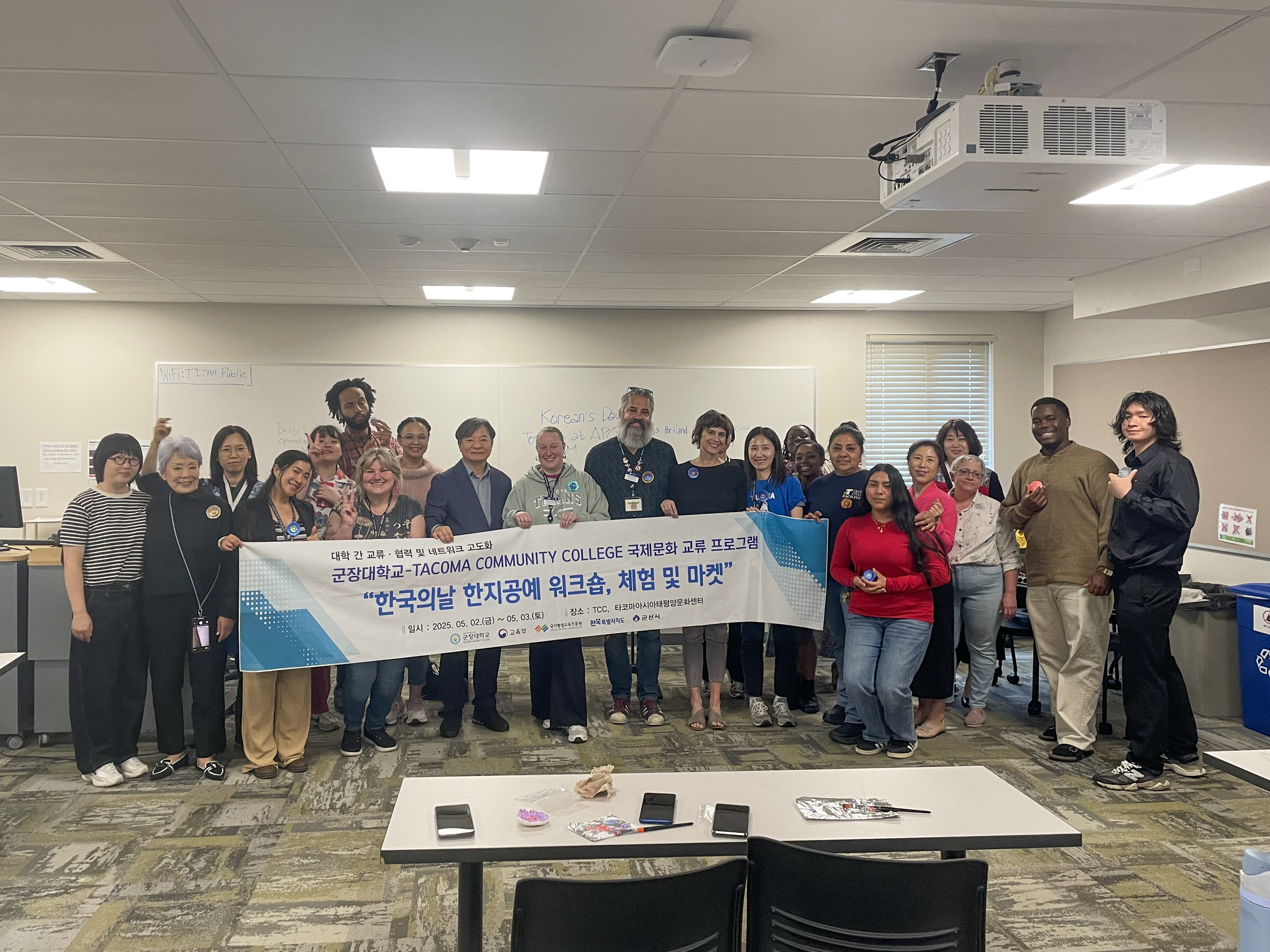
"Significant Other" Asian American affinity group and guests at Hanji Flower Pin making workshop by local artist and Asia-Pacific Cultural Center founder Patsy Surh O'Connell. Photo courtesy of Wendy Larsen.
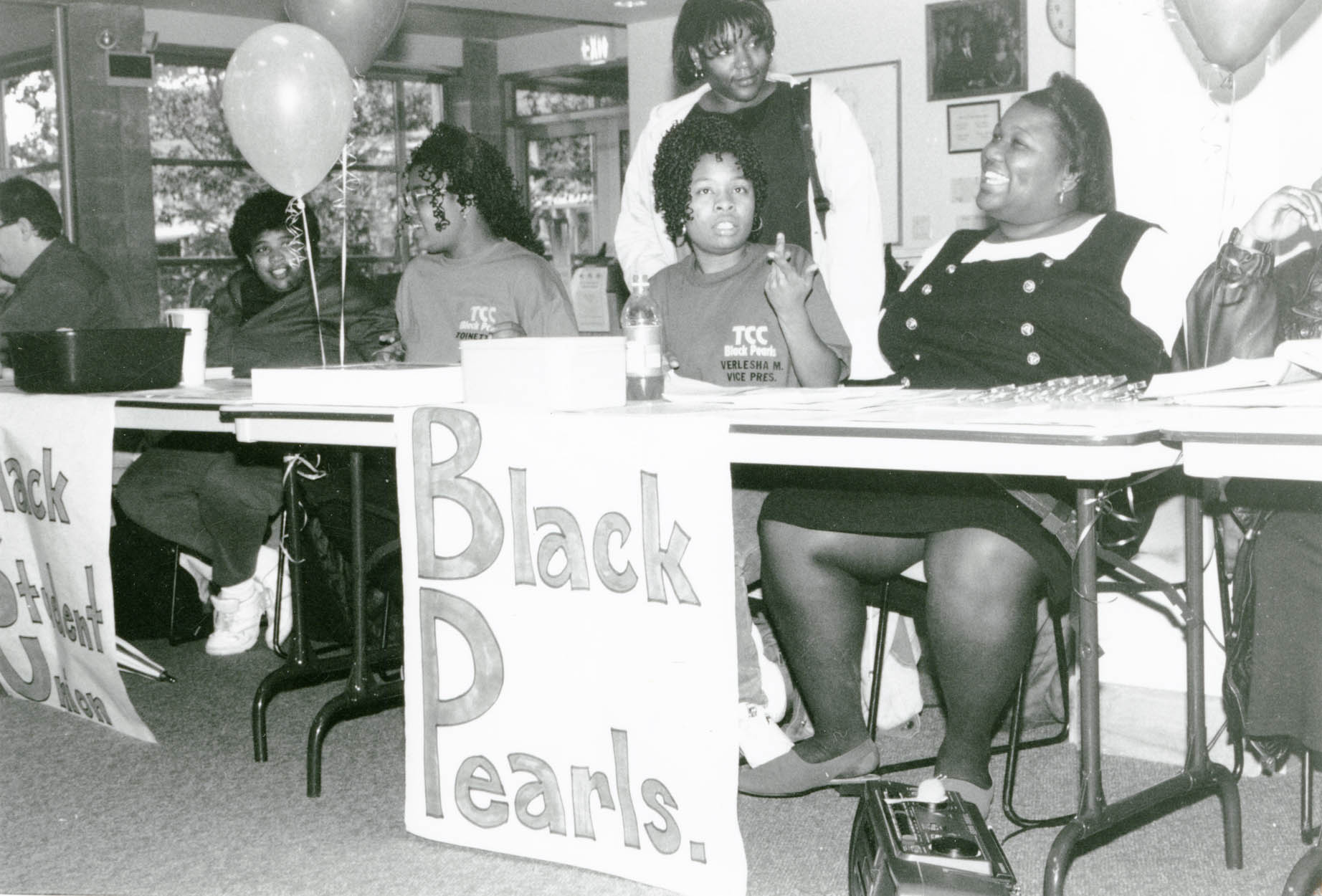
Shared Identity & Community
The creation of the Multicultural Student Services (MCSS) Program provided important, stable support for students of color, and with its staff serving as advisors for student groups, clubs based on shared identities such as the Asian/Pacific Islander Club, Black Student Union, the Black Pearls (Black women’s student group), Native American Club, and the Women’s Network began to thrive.60 Decades later, the feedback received by the new Office of Equity, Diversity, and Inclusion (OEDI) demonstrated that TCC employees, too, sought community with each other. This led to the creation of affinity groups – employee resource groups for staff and faculty of shared identities – in 2021. Active affinity groups at TCC include communities of Black women, white employees focused on anti-racism, Asian-Americans and Pacific Islanders, LGBTQIA+ employees, and Latine employees.61
Access Services
Although TCC aimed from its beginnings to be accessible and was dubbed “the stepless college,” growing awareness of the inequities present in navigating campus spaces, educational methods and resources led to the creation of the Resources for the TCC Handicapped Office (RHO) in 1977.62 The RHO provided support for students with counseling and referral services, transportation assistance, and learning support such as note-taking, acquisitions of large-print books, and other adaptive strategies and technologies.63 Not long after the formation of the RHO, the office organized an Awareness Day Seminar in 1978 to help educate the broader TCC community on disabled students’ needs,64 and TCC agreed to a major partnership to support community members with disabilities with local organization, the Tacoma Area Coalition of Individuals with Disabilities (TACID).65
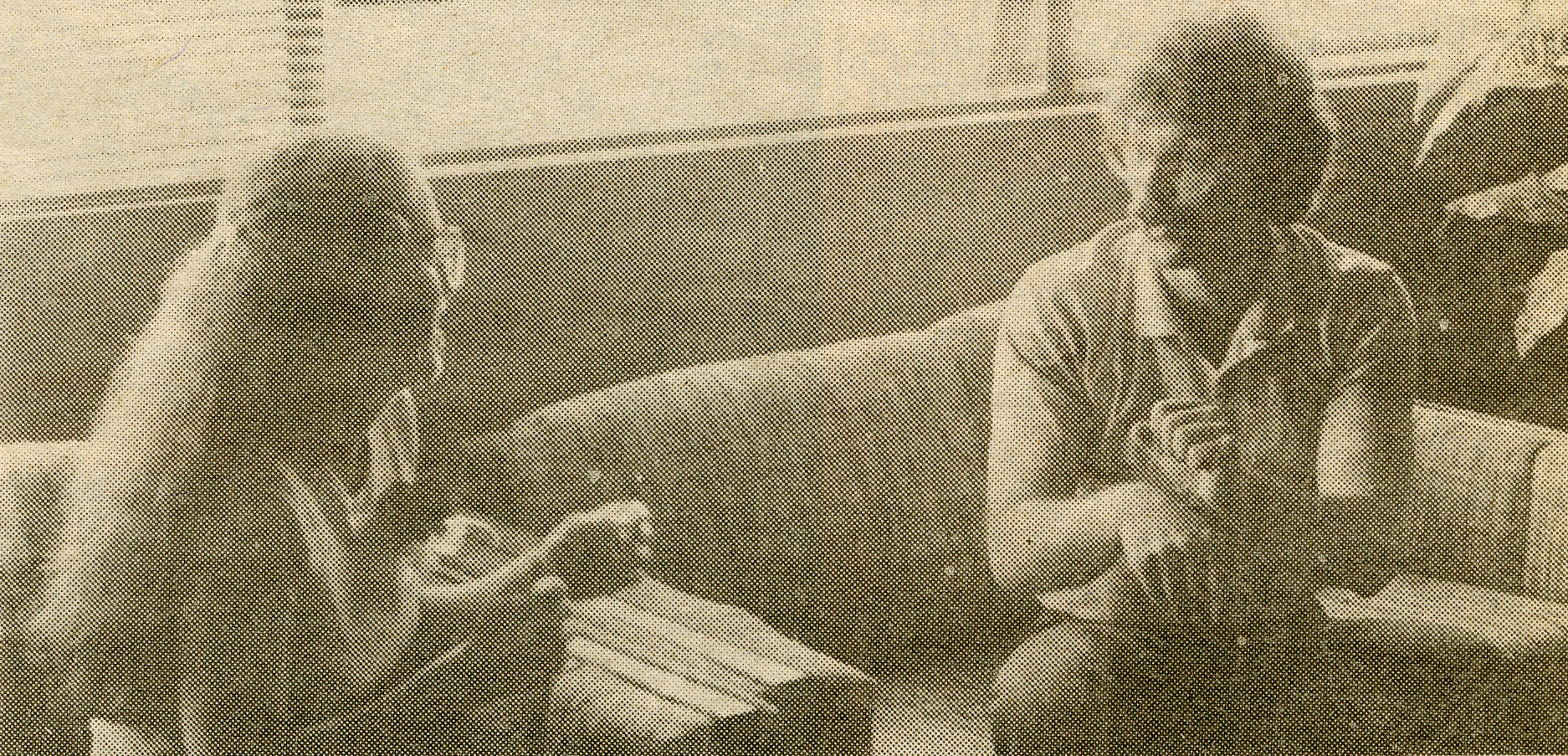
TCC community members speaking in sign language with each other.
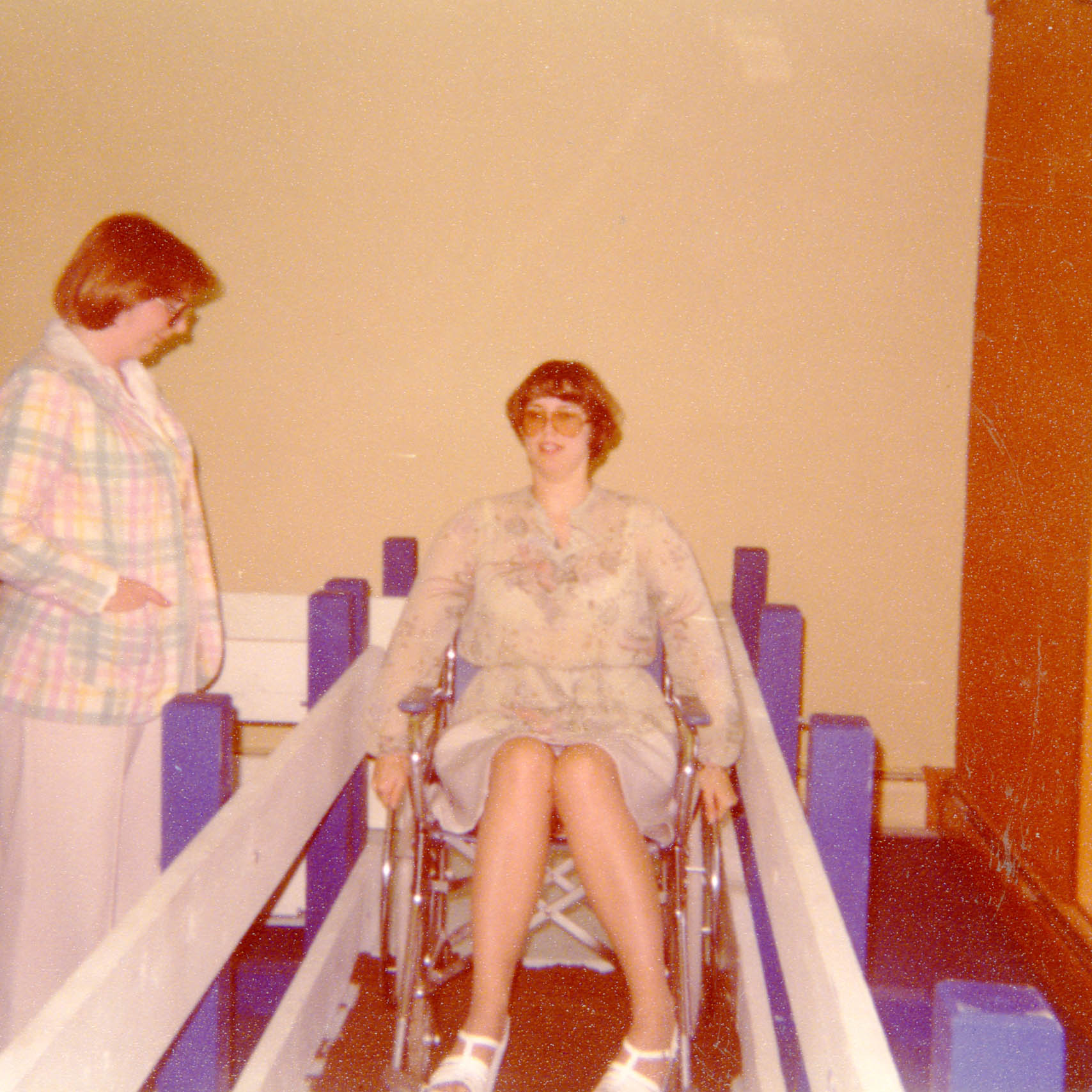
Disability Awareness Day, 1978
Understanding the lack of information in the wider campus community of disabled students’ needs, the Resources for the TCC Handicapped Office (RHO) planned an Awareness Day Seminar, which took place in April 1978. The event brought together 125 attendees and representatives from local organizations including the Puget Sound Foundation for the Blind, the Association for the Deaf, Rainier School, Mary Bridge Speech and Hearing, Pierce County Social Services, the Bureau of Developmental Disabilities, and the Department for Human Development. Activities included a “barrier tour” of campus and an opportunity to test a wheelchair training course.66
With the signing of the Americans with Disabilities Act (ADA) in 1990, awareness of accessibility issues slowly became more visible throughout the college. TCC began offering courses in American Sign Language, access technology, and how to teach students with learning disabilities. Over the next decade, the RHO expanded, and in the 2000s it became known as Access Services.67
More recently, Access Services has made significant renewed efforts at outreach into the TCC community with the creation of several new initiatives. In Fall 2021, the department established the Access Services Faculty Liaison group, which provided a structure for information-sharing and partnership-building between those working with students in the classroom and those supporting accommodations and other services for students with disabilities.68 In November 2022, the Disability and Intersectionality Speaker Series began, which emphasizes underrepresented voices in the disability community and highlights the intersections of disability issues with those of race, gender and sexuality, and other identities and statuses.69 Speakers have included Stephanie Woodward (Executive Director of Disability EmpowHER Network), Dr. Pau Abustan (Assistant Professor of Women's, Gender, and Sexuality Studies, California State University, Los Angeles), Ola Ojewumi, attorney Ami Hyten, actor RJ Mitte (known for TV series Breaking Bad), comedians Josh Blue and Pamela Schuller, among many others.70
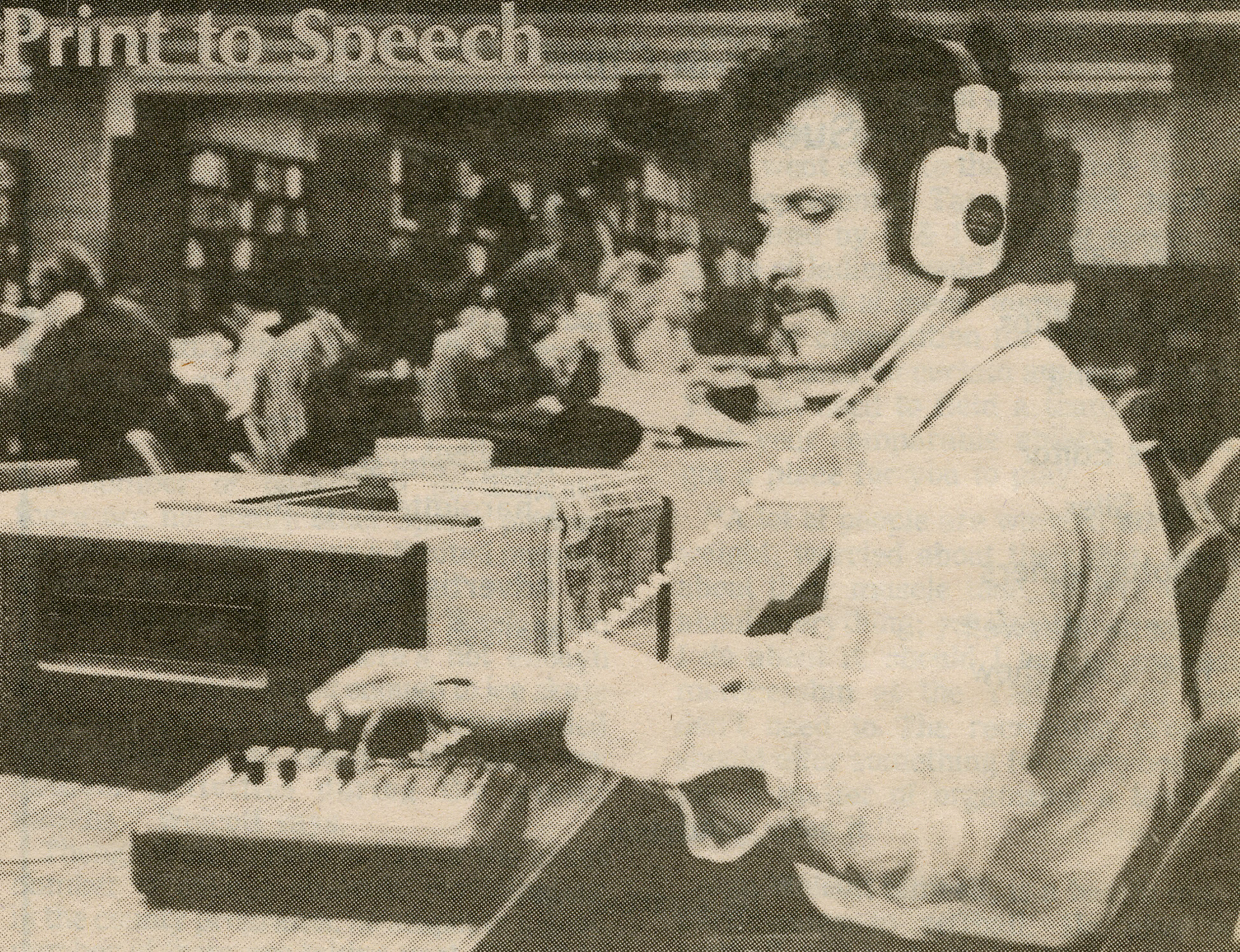
While the library had had resources like large print books, CCTV, and a Kurzweil Reading Machine for the Blind for years, it began enumerating these adaptive materials in the college catalog in the nineties.
LGBTQIA+ Support
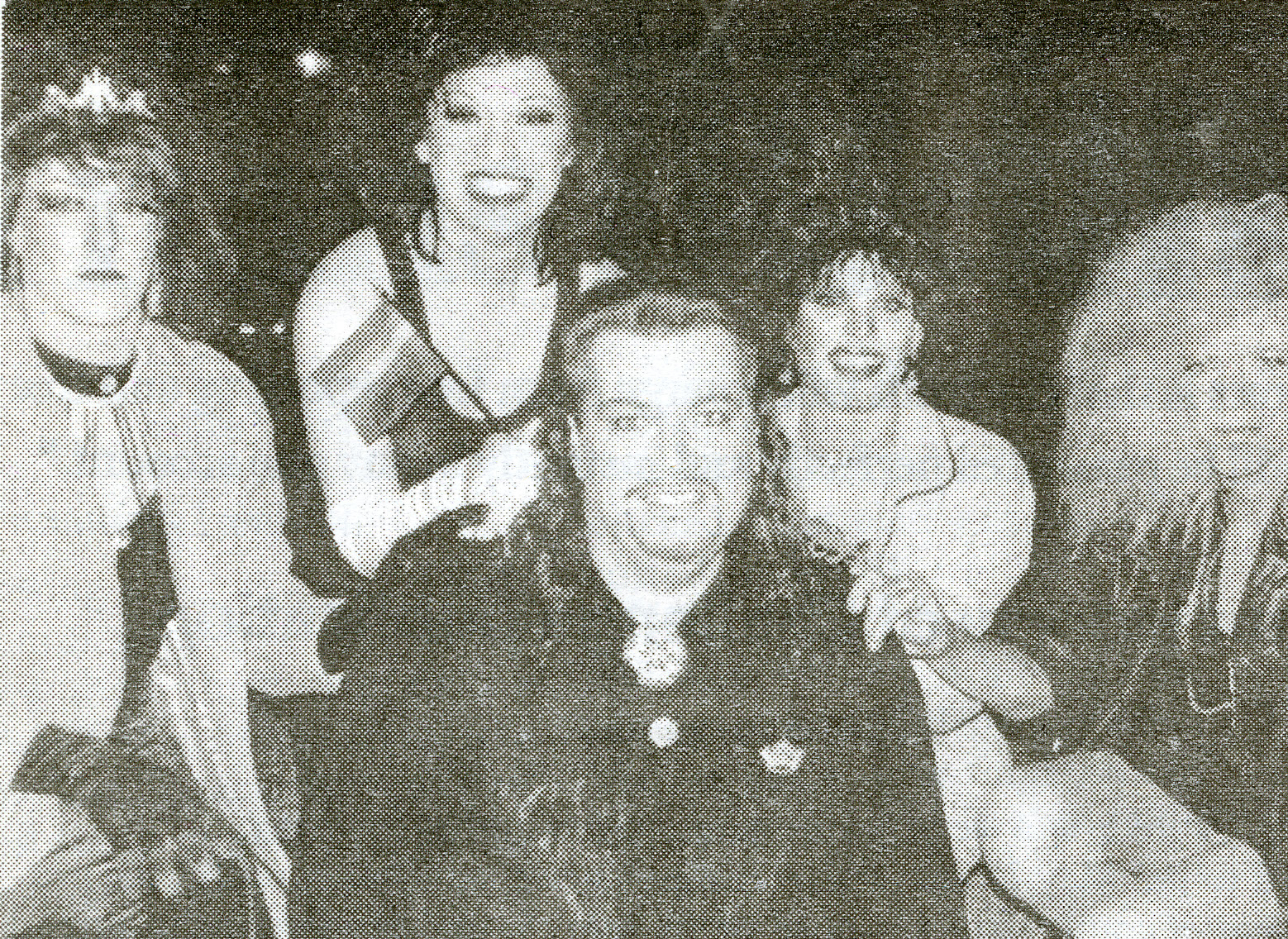
Pride TCC talent and drag show, 2000.
Lesbian, gay, bisexual, transgender, queer, intersex, asexual people and those of other diverse genders and sexualities (LGBTQIA+) have always been part of the TCC community, but their visibility and ability to be open about their identities have not always been without risk. The first forms of campus support centered around sexuality were formed by students in the 1980s, beginning with the brief appearance of the Gay Students Association in 1983.71 In 1989, students tried again much more successfully with GLAD (Gays and Lesbians Accepting Diversity), with Multi-Cultural Student Services Coordinator Jacqulyn Cockfield serving as their advisor.72 GLAD was from the beginning intersectional in nature, with its emphasis on diversity and its programming and advocacy overlap with the Black Student Union (BSU) thanks to President Walter Palmore, who served as a peer counselor and an officer in both GLAD73 and the BSU.74 Students again formed a group in 1997, this time called Pride TCC, and organized what appears to be TCC’s first Pride event in 2000.75
Pride at TCC
The first Pride celebration by student group Pride TCC was held in 2000. The all-day event included an information fair with representation from campus and local organizations such as Brother-to-Brother-Sister-to-Sister, the Legal Marriage Alliance, New Heart Fellowship, Pierce County AIDS Foundation, Planned Parenthood, POCAAN, OASIS (LGBTQIA+ teen center), the Rainbow Center, and TCC Counseling Center; followed by a “freedom rally” with speakers including 27th District Representative Deborah Regala and TCC Board of Trustees chair John Lantz.76 In the evening, a talent and drag show benefit raised funds for Three Cedars respite home and OASIS.77 In 2006, successor student group, the Pride and Allies Club (PAC) sponsored its second drag show, for which the student newspaper coverage of the event noted the extensive turnout78 – a marked change from Pride TCC’s first celebration only six years earlier.79 The celebration was capped with the acknowledgement of the recent passage of Washington HB 2661, which enshrined protections against discrimination based on sexual orientation.80
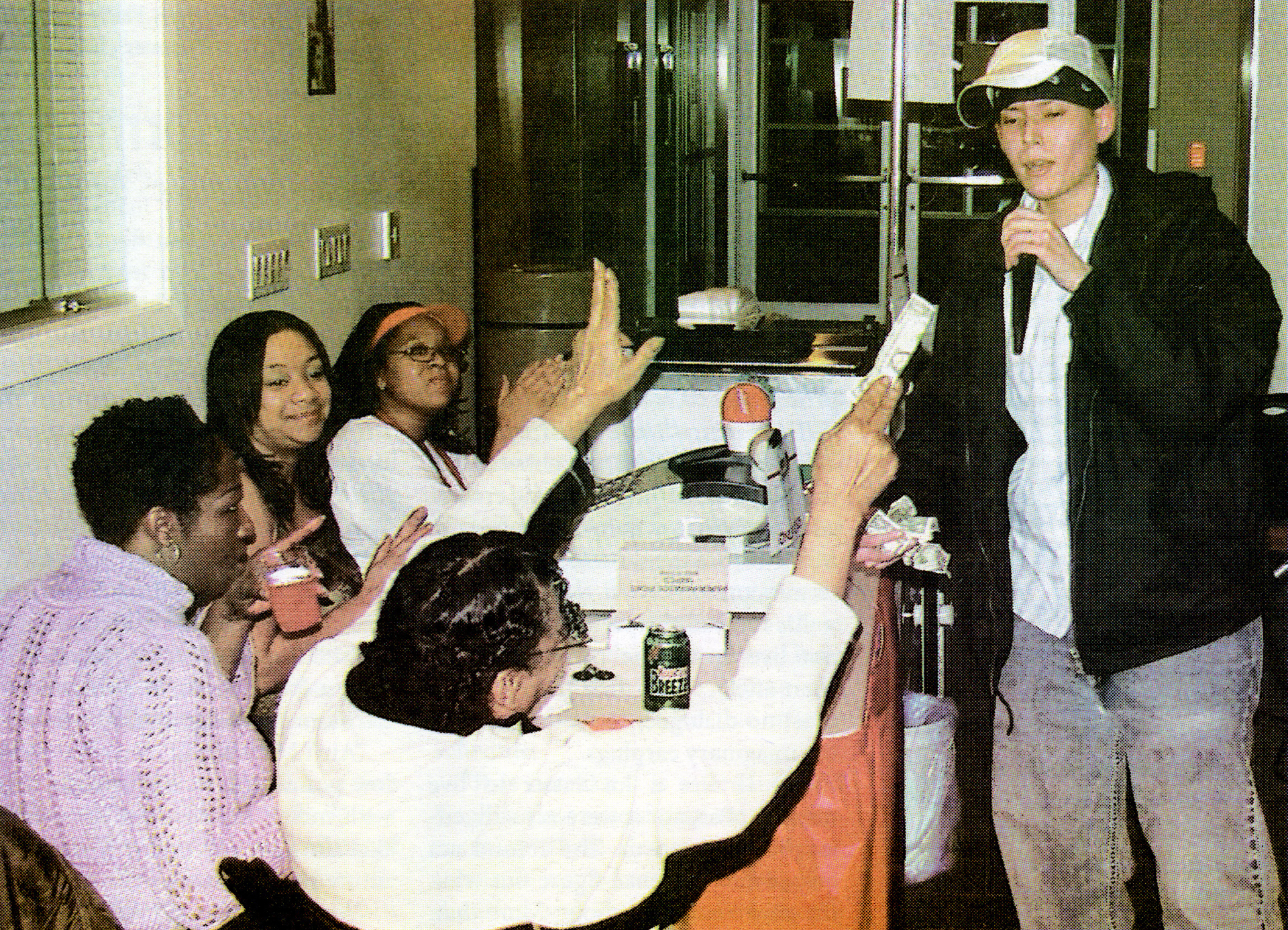
Performer Tay as Eminem at the PAC drag show, 2006.
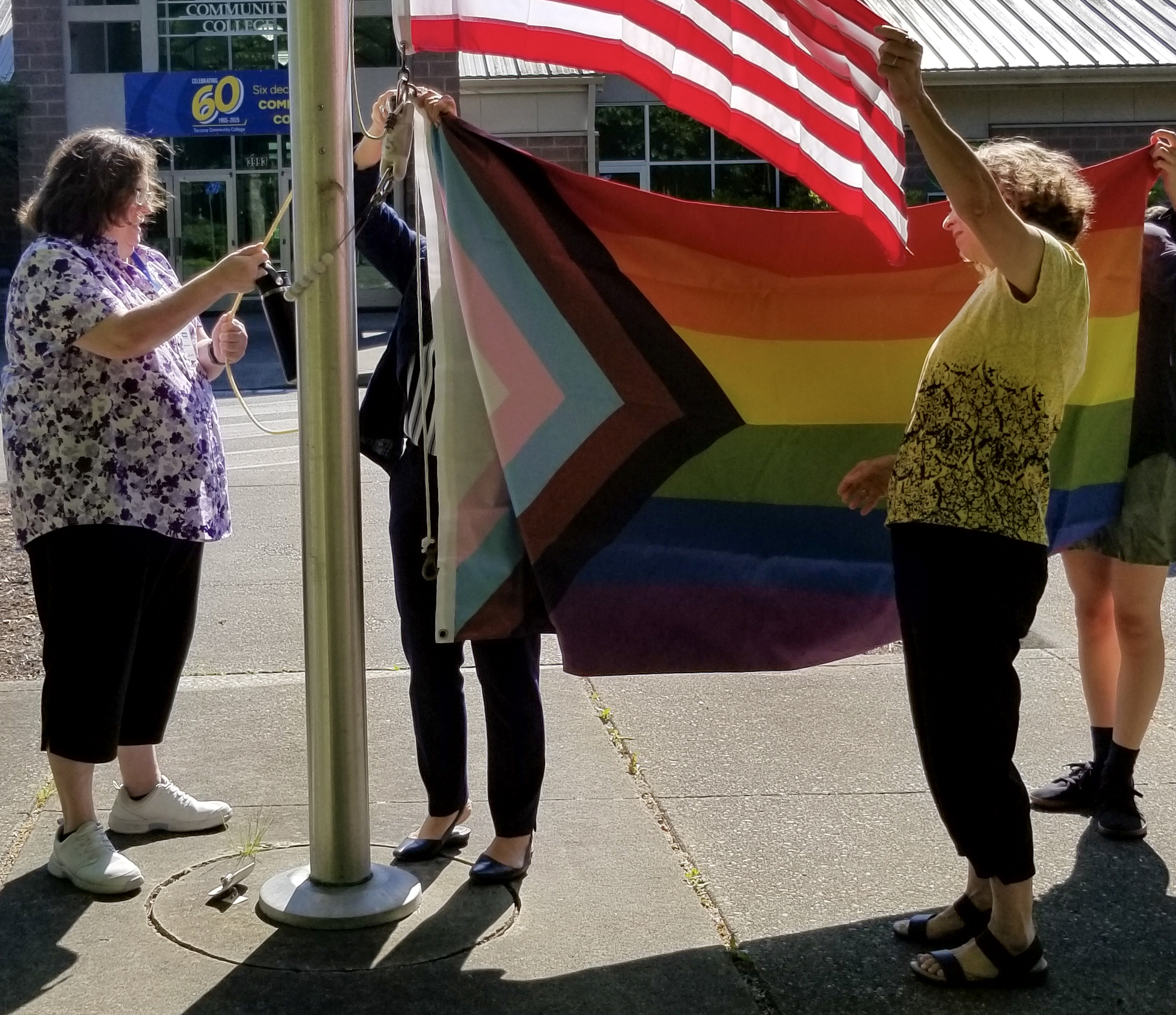
In June 2023, the Gig Harbor campus made TCC history by raising the Pride flag for the first time.
Five years later, a coalition of students and employees explored the campus climate for LGBT community members and concluded that there was need for greater support. The students created a new Pride and Allies Club (PAC), and employees created the Committee on Access, Respect, and Equality for Sexual Identity (CARES). Together, they developed a Safe Zone training for TCC employees to understand the unique needs and challenges of LGBTQIA+ students and how to better support them.80
CARES became the Rainbow Action Committee (RAC) in 2019 and affiliated with the Equity, Diversity, and Inclusion Council (EDIC) when the Office of EDI was formalized. In 2023, the Gig Harbor campus made history by raising the Pride flag for the first time during the month of June; the Tacoma campus joined in the following year. The Safe Zone program was recently revitalized with a new, unique-to-TCC program, Beyond the Binary, incorporating updated understandings of gender and sexuality, and the changing landscapes our LGBTQIA+ community members are navigating.
